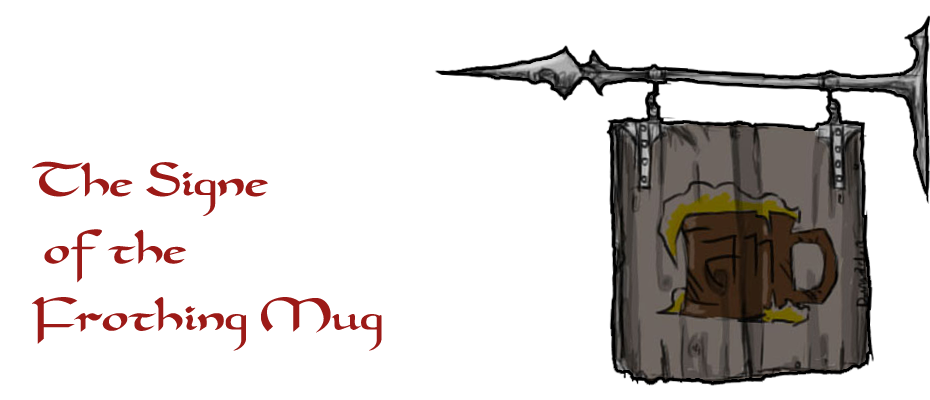This article comes directly as a request from my players, who want to know more about the involvement and influences of merchant interests in Arunia and the Third Empire of Miles in specific.
The first thing that must be stated: there is enough commerce to support a merchant class! This is a deviation from my standard medievalism, particularly the early middle ages, when a unified merchant class really didn't exist in any discreet way. However, Arunia has enough functioning social structures to provide the constant source of income-by-trade that merchants require to exist as a threshold matter. Particularly, the advances of elvish and dwarven sailing-craft have made the entire Trade Sea pliable, and the ancient but still functioning society of High Aellon (notably the city-state of Chimeron) which inherited its sailing and shipbuilding techniques from the Giants, has helped bolster the intercontinental trade networks that make up Arunia's economy.
Merchants in the Empire
Merchants in the Third Empire have a special protected status. Most are outsiders, from beyond the Empire's borders. Since Miles has always needed a steady trade in grain from Khewed and Hadash, there are ancient laws governing merchants and their trade that have existed since the First Empire. These are known as the lex mercantorum, and they provide for private merchant-courts to be assembled from the natives of whatever land the merchants hail from. In Miles, this is no problem: there are communities of people from as far away as Mugharia and Arunia-Sudus, so even if a Zeshimite merchant is involved in some kind of lawsuit, any given day in Miles can find between 5-12 other Zeshimites to staff a court.
Outside of Miles, however, merchants are not required for the functioning of the Empire and its peoples. Most regions are self-sufficient, and those that are not engage in intra-Imperial trade. This is managed by much smaller merchant concerns which are themselves not subject to the lex mercantorum because they are generally imperial citizens.
Far-trading foreigners have less reason and opportunity to form merchant-compacts as they generally rely only on themselves and their own ship (or ships, as the case may be). Thus, it is rare to find compacts formed from Zeshimites, Mugharians, Khewedi, etc. However, the same cannot be said for dwarves, gnomes, and elves, all of whom have powerful merchant concerns in their own lands. Elves in particular form merchanting compacts, such as the Silver Tree, and other trading companies. So, too, do local inter-regional merchants and even some intra-imperial merchant concerns.
What is a trading compact?
It's not a company. There are no corporate charters. Trading compacts are general partnerships in which each partner is fully liable for the debts of the entire business. For this reason, trading compacts are hesitant to take on or add partners that they don't know very well. Loss and risk are pooled amongst several trade routes and may be shared between many different types of goods.
For example: the Noranian Traders are a group of wealthy merchants who run caravans from Noranos to Miles, Bataille, and the Serpent Baronies. They pay (jointly) to organize and supervise caravans unloading goods at Noranos. These caravans wind their way across the countryside and sell their goods when they reach the cities of their destination. The merchants generally accompany these caravans and sell the goods themselves, contract to deliver the goods to a merchant in the destination city, or are the merchant at the destination. The Noranian Traders have a huge partner pool, and thus have been required by circumstance to organize themselves into a ruling council and lesser partners.
How does trade influence politics?
Elves, dwarves, and gnomes are very open about their commitments to trade. Men, not so much. In the empire, merchants are frowned upon as a class of profiteers. The noble pursuit (earning money by owning land) is the only "legitimate" one (though adventuring is also, ironically, seen as semi-legitimate in the Empire). Merchants have very little formal say in politics (outside of a few aberrant territories like the Free Cities or Seagard, which are mercantile governments), though they may command vast mercenary resources, huge numbers of ships, and be able to embargo nearly any luxury.
What are the great merchant powers in the Empire?
There are several large compacts that play a role in the Empire. These are the elvish compacts, the dwarven clan that trades in weapons (the Harnmr Smiths), and the League of Seareach. Though the Seagard House of Trade has some influence in the Serpent Baronies and the Lonely Lands, it lacks the overarching power of these compacts. Smaller companies, such as the Noranian Traders and the Heartland Traders, or even the Red Branch (which operates a trading route that goes all the way up the Saltgate Road to the Vales) have almost no power in the imperial administration.

No comments:
Post a Comment